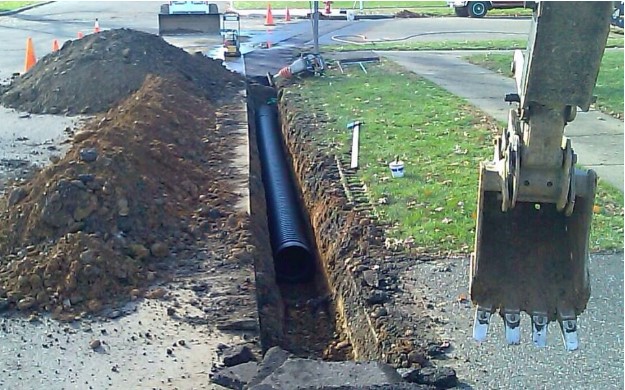Maintaining a healthy environment is essential for our communities. Surprisingly, everyday household systems play a significant role in this effort. Among them, septic systems are often overlooked. These systems manage wastewater from homes, filtering and treating it naturally before returning it to the ground. Their impact extends far beyond convenience—they actively support environmental protection. From preserving water quality to sustaining soil health, septic systems are silent guardians of nature.
Role Of Septic System In Water Filtration
A septic system is designed to treat household wastewater by separating solids and allowing liquids to flow into a drain field. This process naturally filters contaminants. As wastewater percolates through soil layers, harmful bacteria and nutrients are absorbed, preventing them from entering rivers or lakes. This filtration reduces pollution in surface water and protects aquatic ecosystems. By managing waste responsibly, septic systems prevent harmful substances from seeping into drinking water sources, showing how crucial a well-maintained septic system is for environmental protection.
Septic System And Groundwater Preservation
Groundwater is a vital resource for drinking, irrigation, and industrial use. A properly functioning septic system ensures that contaminants do not leach into aquifers. The soil acts as a natural filter, removing pathogens and chemical residues. This not only preserves the quality of underground water but also reduces the need for expensive water treatment facilities. Communities relying on wells particularly benefit, demonstrating that septic systems contribute significantly to maintaining clean and safe groundwater.
Soil Health Support By Septic System
The soil surrounding a septic system absorbs and treats wastewater, enriching it with nutrients. This process encourages microbial activity, which improves soil fertility and structure. Healthy soil can support plant growth and stabilize landscapes. Septic systems mimic natural cycles, returning nutrients like nitrogen and phosphorus in controlled amounts. By doing so, they prevent overloading ecosystems with excess nutrients that can trigger problems such as algae blooms, reinforcing the role of septic systems in environmental stewardship.
Septic System And Ecosystem Balance
Septic systems indirectly support broader ecosystems by reducing pollution. Clean water, filtered through these systems, helps sustain wetlands and natural habitats. Wetlands, in turn, act as buffers, absorbing floodwaters and providing homes for wildlife. A single properly maintained septic system might seem small, but collectively, they protect rivers, lakes, and forests. This interconnected impact highlights that septic systems are not just home conveniences—they are essential tools for ecosystem balance and environmental health.
Energy Efficiency And Environmental Footprint
Unlike large sewage treatment plants, septic systems operate without significant energy input. They rely on gravity and natural processes to treat wastewater. This energy efficiency reduces carbon emissions associated with centralized treatment facilities. By lowering energy use and minimizing reliance on chemical treatments, septic systems help reduce the overall environmental footprint of waste management.
Maintenance Practices Enhancing Environmental Protection
Regular inspection and maintenance of septic systems are key to maximizing their environmental benefits. Pumping solids periodically prevents clogging, and careful use of chemicals ensures microbial balance. By following proper maintenance routines, homeowners ensure that wastewater is treated effectively and safely. This simple practice extends the lifespan of the system and continues to protect soil, water, and surrounding habitats.
Conclusion
Septic systems are more than a household necessity—they are critical allies in protecting our environment. From filtering water and preserving groundwater to supporting soil health and ecosystems, their impact is far-reaching. Energy-efficient and naturally effective, these systems offer a sustainable solution for wastewater management. Proper maintenance enhances their benefits, making every functioning septic system a small but powerful contributor to environmental conservation.

